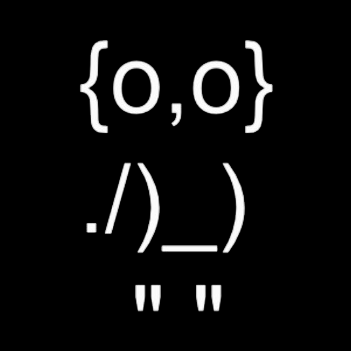this is what i need/am looking for:
- note taking on android, maybe PC too.
- easy to check them off, ability to set it to push notification about specific notes
- tied to a calendar
- voice to text capabilities. i need to be able to dictate a reminder on the go.
- preferably free but i would totally pay for these features. just not subscription model
I use something called notion and it has really helped me.
I chose to start with a blank page and build my organization thing from scratch but you can start with templates as well. It was super fun once I started designing it and now I have a functioning study hub. It has a quick direct section for my calendar page, classes page, notes page and, extra. It has a list of quick tasks that I can check off, it shows me the weather for the next 7 days, has 2 imbedded playlist and a podcast I like as well as some extra stuff like what I’m into at the moment because I shared the page with my gf.
To start of with what helps the most: the calender lets you add activities/tasks and you can assign them categories as well as level of completion and you can turn it into a list form organized by date which is great too. There are plenty of other ways to classify and notate these activities but I personally don’t need more than level of completion, name, date, and associated class. I sometimes add a link directly to the assignment which is helpful.
It also has an app that connects to your desktop instance so you can access it when you aren’t home.
So in short:
- can take notes with it and organize those notes based on whatever you want
- easy to check off assignments and can send notifications to your phone
- tied to calender
- unsure about voice to text tbh but it could have it
- free (minus some data but it’s better than most services tbh)
+1 for Notion
i’ll give notion a try thank you!
I just carry around a pen and small notebook in the front pocket of my overalls for note taking. I also have a big ass wall calendar that i get every year from a gasket manufacturer local to my area. I got the notebooks from the local dollarama.
Ive tried a few note taking apps on iOS, but always just go back to pen and paper. I dunno if its because the note taking apps on iOS suck or if pen and paper just suits me well.
If you cross your eyes and squint a pen/pocketbook meets most of your requirements. Its cheap, tied to a calendar, easy to check off stuff, can notate OTG…
Second this, I’ve tried almost every app in existence and only pen and paper has worked. It’s good for catching thoughts, scribbling, to do lists, and whatever else I feel like using it for.
However, I treat everything in my notebook as temporary. For permanent notes and references and stuff like that I use Obsidian.
This may not suit your needs so feel free to disregard because it’s not a direct answer to your request but it’s more of general advice for note taking and task management in a system that I’ve developed which works well for me. Here goes…
I try to divide my tasks between three categories:
-
Simple to-dos
-
Complex & interdependent tasks
-
Projects
Simple to-dos are easy. That’s the sort of things that you put on a shopping list or a list of places you need to visit while you’re out shopping or the things you’re going to clean today. The stuff that isn’t complex and can be written on a scrap of paper or a note in your phone that you don’t need a record of. These are the lists that are disposable. How you choose to manage this stuff is really a matter of personal preference and what you’ve got at hand.
For complex and interdependent tasks, I like to use bullet points and indentations for each dependency. It’s easier to just show you than to try and describe it in words because when you see it, it should make intuitive sense:
_• Clean house for inspection
_ • Organise lawns to be mowed
_ • See if neighbour will lend mower
_ • Get quote from lawnmowing company
_ • Get price for electric line trimmer
_ • Deep clean kitchen
_ • Soak range hood filters
_ • Scrub grout & polish tiles
_ • Buy grout brush
_ • Clean oven doorThat sort of thing. Different bullet point symbols per indentation makes it easier to deal with at a glance.
The reason this works well is because it allows me to empty my head of tasks and I’m not trying to remember half a dozen dependent tasks which are part of the larger task, and I can arrange things by order of priority or necessity which is especially good when I realise that it’s necessary to do one step before I do others for whatever reason.
Last of all is projects.
Projects are tasks which require a lot of information, a lot of decisions, and often require that things be done sequentially. Think of these as generally being one-off tasks that are large or which have a lot of moving parts, especially ones that you’re unfamiliar with; you probably know how to clean your kitchen so that’s not a project. Replacing your kitchen cabinets takes a lot of steps and a lot of information, plus you’ll have to make a lot of decisions in the process, so this would almost certainly be a project unless it’s also your day job.
I like to use Notion for projects because it helps me collect info and gives me access to previous decisions made etc. but there are other similar apps out there. For people who work in the health sector and similar fields, I basically casenote my previous actions and what the next steps are.
Each project gets its own document/folder and I either dump all of my thoughts, prices, measurements, research, delivery times, next steps in the process, other people who need to be involved, etc. into one single document or if it’s a really big project then I will create separate files or documents within the project folder which will be titled as relevant sections in a way that makes sense to me - it might be simple and have one Steps/Tasks document and another for Thoughts or it might be really big and have a document category for each domain, however this is sorta on the level that I’ve only ever really gone to when I’ve done event management or actual professional project management so it’s not likely to be necessary for people unless they really need a high level of granular detail to provide needed structure or a sense of security.
My last tip is to use a calendar for time-blocking tasks which have a specific date that they’re due by.
This helps me manage my time because it provides a suggestion for what needs to happen on the day that something is due and I can block out that period of time to get the task done. It doesn’t matter if it’s rough or only used as a guideline because the reminder is the important part to me. This is an optional thing but I find it’s a good adjunct/middle ground for the simple to-do list tasks. Obviously for time-sensitive tasks and projects, I put them into my calendar so I get pop-up reminders too. This helps me organise my time better because when I open my calendar, I am looking at my days ahead and what I need to get done - basically I’m in time-management mode. Relying on reminders from within Notion or similar is… okay but the app dictates to me when it’s going to remind me of due dates and I find that doesn’t really help me with time management because it’s not on hand when I need it.
My final advice is to create a system of organisation that works for you. Build it from the ground up. When you find you have outgrown your to-do list and you require extra functions, e.g. reminders, then seek out either a better app/system or add an additional layer of organisation, e.g. time-blocking in your calendar app. Let the system fail and identify how and why the system failed you then use this information to help you develop and refine your system. The absolute best system is the one that works for you and which is most intuitive for you. If you are working to accommodate the system then that’s a major red flag imo because your system should be an extension of your brain and a way to structure your processes rather than trying to squeeze your needs and your processes into a system which doesn’t accommodate you. If you have to put in significant effort to make your system work, especially if it’s after the initial phase of familiarising yourself with it, then that’s a bad sign.
thank you for this write up!!
starting big home renovation project soon so at the very least can port over our crappy shared google doc to this format
-
Obsidian is supposed to be good but I haven’t tried it myself
i use obsidian too but it seems more useful for writing outlines, worldbuilding, etc. like a tiny custom wiki.
i’m thinking something more like a planner with note taking capabilities
I take endless notes sending myself messages on signal/ telegram, but i’ve also used standard notes pretty successfully, they’re a bit tidier cause you can use them like a .txt file
Google Tasks is good but of course it isn’t encrypted or anything so Google sees everything :(
yeah tasks i used for a while but i’m trying to get out of the google ecosystem.
i have a persistent fear that google will start banning accounts in the future for using adblockers and torpedo my entire life’s organization (not to mention lose my primary “normie” email address"
Same deal with Microsoft To Do (formerly Wunderlist). It has Outlook integration, but ew. Outlook.
Can anyone weigh in on whether Obsidian is any good?
You mention note taking app in the title, which is what it looks like Obsidian is. But your second bullet is “easy to check them off”, which isn’t what most note-taking apps are designed around.
To-do list apps and note-taking apps are quite different. To-do lists should allow you to really quickly pull out your phone and create a task and set a date for it, note-taking apps usually have documents with an editor and they’re not organized as simple tasks that go away when you’re done. You’re not gonna want to stand there and click through a bunch of stuff to make a simple task, and the same for completing it. So you should decide which one you want, although I’m sure there are apps that support a hybrid.
deleted by creator







